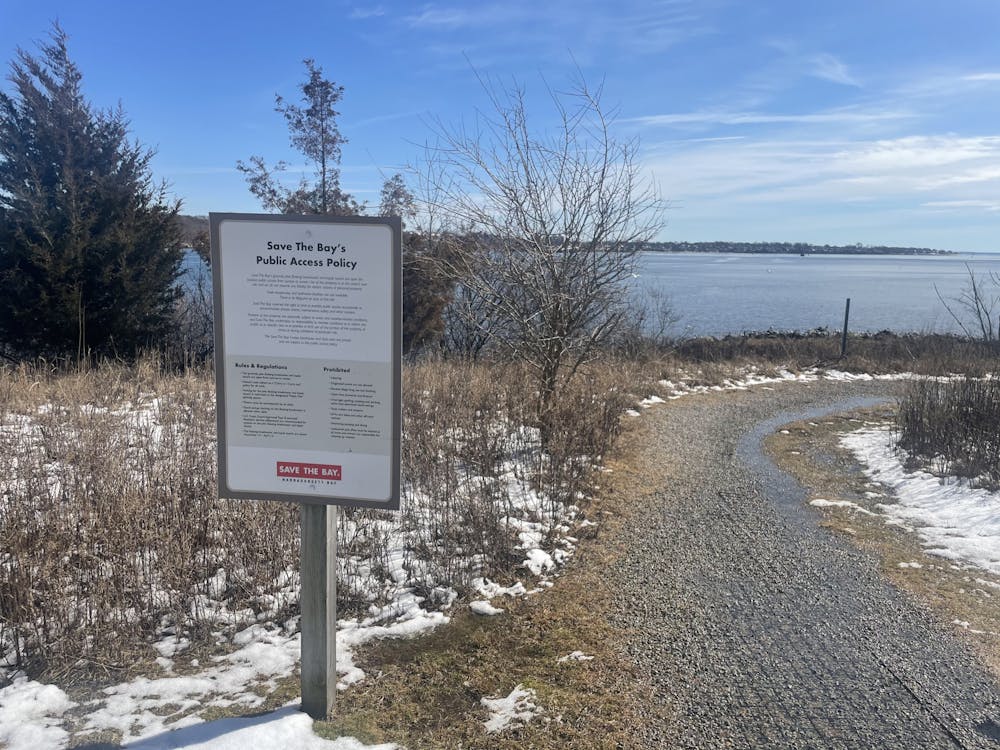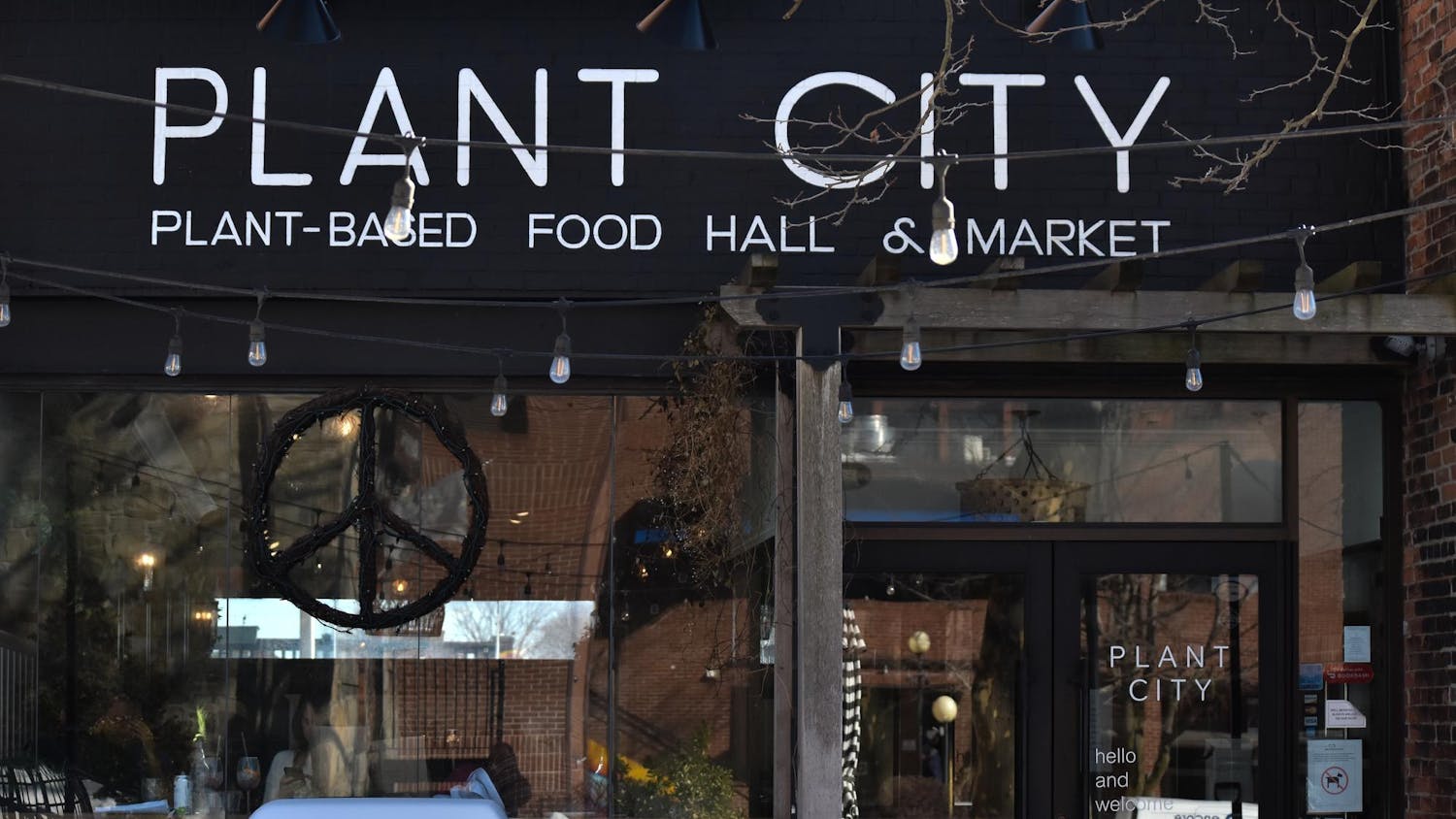On Thursday, Rhode Island community members gathered in the State Library, where legislators and environmental leaders spoke in support of a new “bottle bill” for the Ocean State.
In 10 states, bottle bills — which add a small tax on top of the price of a beverage to be repaid when the empty container is returned to the retailer or a redemption center for recycling — have helped keep containers, bottles and bottle caps out of bodies of water.
Save The Bay, an independent nonprofit organization that works to protect and improve Narragansett Bay, is one of several organizations in the Rhode Island Zero Waste Coalition advocating for a bottle bill to address pollution in the state.
According to Executive Director Jonathan Stone ’80, Save the Bay was founded by a small group of Rhode Island residents in response to a proposal for large-scale energy projects in Narragansett Bay, the first of which was an oil refinery in 1970. "We've always been a grassroots organization,” Stone said.
Save the Bay carries out their mission through three main areas of work: advocacy, education and habitat restoration and adaptation, according to their website. This advocacy involves supporting legislation to protect the bay, stopping legislation that may harm the bay and advocating for resources to clean the bay and make it more resilient to climate change, said Director of Advocacy Topher Hamblett.
“I grew up right around Narragansett Bay, I’ve been sailing there ever since I was 12 and it has always had a very special place in my heart,” said Sarah Wong ’25, a volunteer with the group. “I knew that the bay is very polluted, and Save the Bay does whatever they can to mitigate the pollution.”
The bottle bill
In January, the Rhode Island Zero Waste Coalition sent a letter to Gov. Dan McKee asking him to support a bottle bill in the state.
“Keeping our state free of litter and looking pristine is a priority for the Governor,” wrote McKee’s Press Secretary Olivia DaRocha in an email to The Herald. “The Governor’s team is reviewing the legislation and we’ll continue to monitor it as it makes its way through the legislative process.”
On Feb. 10, Rep. Carol Hagan McEntee (D-Narragansett) officially introduced the Beverage Container Deposit Recycling Act of 2022. The next step is a committee hearing that will occur in the next two weeks, according to McEntee.
“We all have to be part of the solution,” she said. “The planet, it’s getting worse … plastic pollution is at the heart of it.” McEntee added that environmental groups are the “backbone” part of the Rhode Island Zero Waste Coalition. “They’re the ones who volunteer and knock on doors and pick up nips on beaches,” she said.
The R.I. legislation includes a 10-cent refundable deposit on beverage containers, including small bottles known as “nips” or “shooters,” and makes provisions for both retail and independent redemption centers as return options for consumers.
“Bottle bills are the single most effective program for recycling, for transitioning to use (and) for reducing plastics production,” said Kevin Budris, advocacy director at Just Zero, a national nonprofit that works alongside community members to promote equitable zero waste solutions.
Clean Ocean Access — an environmental non-profit organization based in Middletown — supports the bill because “plastic bottles are one of the top three items (of debris) that we do find,” said Casey Tremper, the organization’s program manager.
Three states in New England — Maine, Connecticut and Massachusetts — currently have bottle bills in place. Maryland, Illinois and Washington are among states considering a bottle bill.
A study by the Container Recycling Institute on the effects of bottle bills when first implemented in U.S. states showed a consistent 70-84% reduction in beverage container litter.
Rhode Island’s plastic problem
In 2017, Save the Bay volunteers picked up 16,484 pounds of trash in a cleanup — primarily plastics.
“It gets really frustrating to see the way that plastic is building up in our environment,” said July Lewis, volunteer manager at Save the Bay.
The organization has also helped collect over 30,000 nip bottles, which usually contain 50 milliliters of alcohol, and collaborates with Friends of Saugatucket’s Great Nip Pickup Challenge, Lewis said. The Great Nip Pickup Challenge sheds light on “just how big of a problem these tiny little nip bottles are,” Lewis said.
But the waste issue is “not just the nips, it's all kinds of other bottles and cans and containers out there,” she added.
Plastic bottles in particular are among the top three items found by Clean Ocean Access during cleanups, Tremper said.
Bottles are not just litter — they can also have serious environmental impacts. “When these plastic bottles are out on the shoreline, they are breaking down over time into little bits called microplastics” which can be ingested by marine life, Hamblett said.
In an effort to identify the presence or absence of microplastics, Mike Jarbeau, Narragansett Bay keeper at Save the Bay, conducted a microplastics project several years ago, he said. From the results, one thing was clear: Microplastics are pervasive.
“Every sample we took, no matter where we took it, contained at least some microplastics,” Jarbeau said. “It was pretty eye-opening.”
While the full effects of microplastics are still undetermined, “when you think of the chemical components in plastic, you have to assume there are going to be long-term effects,” Jarbeau said.
Beyond microplastics, some effects of other plastic pollution are plainly visible, including plastics “wrapped around (animals’) necks,” he added.
Opposition to bottle bills, hopes for progress
According to Jed Thorp, Rhode Island state director for the grassroots environmental advocacy group Clean Water Action, major opposition to bottle bills typically comes from beverage companies.
“We are open to solutions that are designed to effectively recover more of our bottles and cans so they can be remade into new ones, as intended,” wrote a spokesperson for the American Beverage Association in an email to The Herald. “Our decades of experience working within deposit systems shows they work best when funded and run by private sector producers of recyclable materials, ensuring high recycling rates, financial stability and convenience to consumers.”
But Budris noted that a private sector-run recycling program “would be a mistake for Rhode Islanders.”
The implementation of the bottle bill is “still … an uphill battle, as we’ve got to calm a lot of fears,” McEntee said.
Polling data for states that have bottle bills show that “the public in those states has a pretty favorable opinion of those systems,” Thorp said. “People get used to returning the empties.”
“Everyone I’ve talked to has also been supportive of it,” said Connecticut resident Elizabeth Ellenwood, who attended the State House rally. “I think we all can do a better job of thinking about waste management and what we need as materials in our lives.”
Ellenwood attended Thursday’s rally because “it’s the neighboring spot that I’m concerned about,” she said. “The water … touches both states.”
“Advocates want it, lawmakers want it, Rhode Island residents want it (and) we feel good about it this year,” Budris said.





